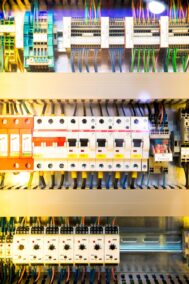Enhancing Air Quality Monitoring Through Strategic Partnerships
The Role of Government in Air Quality Monitoring
The integration of collaborative air quality monitoring efforts between governments, non-profits, and private companies marks a significant advancement in environmental management. In rapidly developing regions like Saudi Arabia and the UAE, maintaining air quality is essential for ensuring public health and sustainable development. By leveraging diverse expertise and resources, these partnerships can provide comprehensive and effective air quality monitoring solutions.
Governments play a pivotal role in air quality monitoring by setting regulatory standards, providing funding, and facilitating coordination among various stakeholders. In cities like Riyadh and Dubai, governmental agencies are responsible for establishing air quality monitoring networks and ensuring compliance with environmental regulations. By collaborating with non-profits and private companies, governments can enhance their monitoring capabilities, ensuring that data is accurate, comprehensive, and actionable.
Moreover, government involvement ensures that air quality monitoring efforts are aligned with national and regional environmental goals. By integrating modern technologies such as Artificial Intelligence (AI) and Blockchain, governments can improve the accuracy and reliability of air quality data. AI algorithms can analyze vast amounts of environmental data to identify pollution sources and trends, while Blockchain ensures the security and transparency of monitoring data. This collaborative approach not only enhances the effectiveness of air quality monitoring but also fosters public trust and accountability.
Non-Profit Partnerships in Air Quality Monitoring
Non-profit organizations bring valuable expertise and resources to air quality monitoring efforts. These organizations often have specialized knowledge and experience in environmental monitoring, advocacy, and public education. By partnering with governments and private companies, non-profits can help design and implement effective monitoring programs that address specific environmental challenges.
In regions like Saudi Arabia and the UAE, non-profits can play a crucial role in raising awareness about air quality issues and advocating for policy changes. Through public education campaigns and community engagement initiatives, non-profits can help inform the public about the health impacts of air pollution and the importance of air quality monitoring. By collaborating with governmental agencies and private companies, non-profits can amplify their impact, ensuring that air quality monitoring efforts are comprehensive and effective.
Furthermore, non-profits can facilitate the integration of advanced technologies into air quality monitoring programs. By leveraging AI and IoT (Internet of Things) devices, non-profits can enhance the accuracy and coverage of monitoring networks. IoT sensors can provide real-time data on air quality levels, enabling more timely and targeted interventions. This integration of technology and expertise ensures that air quality monitoring efforts are both innovative and impactful, contributing to the overall goal of improving public health and environmental sustainability.
Private Sector Involvement in Air Quality Monitoring
The Role of Private Companies in Enhancing Monitoring Efforts
Private companies have a significant role to play in collaborative air quality monitoring efforts. These companies can provide advanced technologies, funding, and expertise that enhance the overall effectiveness of monitoring programs. In regions like Saudi Arabia and the UAE, where rapid industrialization and urbanization pose significant air quality challenges, private sector involvement is crucial for developing innovative solutions.
By partnering with governments and non-profits, private companies can contribute to the development and deployment of advanced monitoring technologies. For instance, companies specializing in AI and data analytics can provide tools and platforms that enable real-time air quality monitoring and analysis. These technologies can help identify pollution sources, predict air quality trends, and inform decision-making processes. By leveraging their technological expertise, private companies can significantly enhance the accuracy and reliability of air quality monitoring efforts.
Moreover, private companies can provide funding and resources that support the implementation and maintenance of air quality monitoring networks. In cities like Riyadh and Dubai, where the cost of establishing and maintaining comprehensive monitoring systems can be high, private sector funding can ensure that these systems are sustainable and effective. By investing in air quality monitoring initiatives, private companies can demonstrate their commitment to corporate social responsibility and contribute to the overall goal of environmental sustainability.
Case Studies: Successful Collaborative Air Quality Monitoring Initiatives
Several case studies highlight the effectiveness of collaborative air quality monitoring initiatives in real-world scenarios. For example, in various parts of the world, partnerships between governments, non-profits, and private companies have led to the development of comprehensive air quality monitoring networks that provide real-time data and actionable insights. These case studies demonstrate the tangible benefits of leveraging diverse expertise and resources for air quality monitoring.
In Saudi Arabia, collaborative air quality monitoring initiatives have been integrated into environmental management plans for various sectors, including transportation, industry, and urban development. By utilizing advanced monitoring technologies and engaging multiple stakeholders, Saudi authorities have enhanced their ability to monitor and improve air quality, ensuring the health and well-being of their citizens. Similarly, in Dubai, the implementation of collaborative air quality monitoring programs has improved overall environmental quality, allowing the city to maintain its status as a leading hub for business and innovation.
These case studies underscore the importance of continuous innovation and adaptation in the field of air quality monitoring. By learning from real-world applications and refining their strategies, regions like Saudi Arabia and the UAE can stay at the forefront of environmental management, ensuring that their communities are well-protected from the impacts of air pollution.
Conclusion: Building a Sustainable Future with Collaborative Air Quality Monitoring
The integration of collaborative air quality monitoring efforts between governments, non-profits, and private companies represents a significant advancement in environmental management. By leveraging advanced technologies such as AI, Blockchain, and IoT, these partnerships can enhance the accuracy and effectiveness of air quality monitoring, ensuring that communities are well-protected from the impacts of air pollution. In regions like Saudi Arabia and the UAE, the adoption of collaborative air quality monitoring initiatives demonstrates a commitment to modernizing environmental management practices and protecting public health.
Effective leadership and collaboration are essential for the successful implementation of these initiatives. By fostering a culture of innovation and strategic planning, leaders can ensure that their organizations are well-prepared to incorporate advanced technologies and collaborative approaches into their air quality monitoring efforts. The continuous evolution and integration of emerging technologies will play a crucial role in building a safer and more resilient future, where collaborative air quality monitoring is an integral part of environmental management and public health protection.
—
#AirQualityMonitoring, #GovernmentCollaboration, #NonProfitPartnerships, #PrivateSectorInvolvement, #ModernTechnology, #AIinEnvironmentalMonitoring, #SaudiArabia, #UAE, #Riyadh, #Dubai























